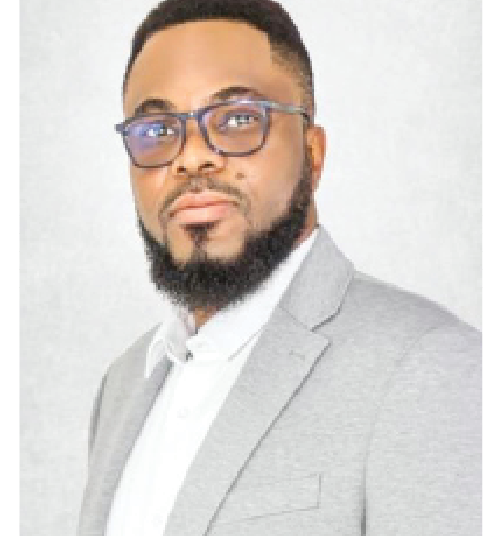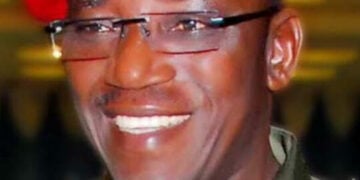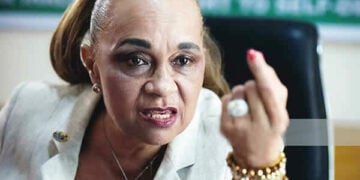How did you develop your interest in your Geology career?
I’ve always loved the outdoors, hiking, and exploring nature. Geology was one of the disciplines that afforded that sort of opportunity. I believe my parents also helped. My father was also a lover of nature, as an adolescent, he would spend hours telling us about past earthquakes and now dormant Volcanoes. I remember Krakatoa and Pompei were his favorite volcano stories. I always wondered, in those days how nature could be our home, and yet so destructive. Over time, I sort of wanted to understand nature, and how the earth ‘worked’. So, my curiosity and love for nature and the outdoors led me towards Geology. Interestingly, my mother wanted me to study Medicine, and my father Engineering. But I wanted Geology. And I went for it.
You have 15 years of experience in quality delivery, influencing critical business decisions in multi-national energy companies. How did you attain your enviable feats in your career?
The bulk of my work in Shell PLC and Petroleum Development Oman as a Production Seismologist/Geologist has been to identify new opportunities – new oil and gas accumulations that is, quantify how much of it is in there and plan for safe extractions through oil/gas wells without compromising safety, cost or efficiency. Achieving this is an integrated effort that requires several other disciplines and stakeholders. Therefore, effective stakeholder management both within and outside of the company is of paramount importance.
I consider collaboration very essential to my delivery. I can count myself lucky to have worked in companies that have a lot of expertise and excellent Subject Matter Experts in their respective fields. One way I have managed to maintain a very high level of delivery is to learn from the experience of others, leveraging the expertise of the excellent technical professionals around me. That way, I’m able to avoid obvious mistakes, over-confidence, and unconscious biases that would be detrimental to my projects.
In my current role as a Front-End Development Manager and Senior Production Seismologist in Petroleum Development Oman, I look for new near-infrastructure or near-field drilling opportunities in the Eastern Flank Area. This is a step out of my comfort zone. I leverage the expertise of older and more experienced explorationists in the company to assess potential new opportunities and projects.
On my part, I have kept up to date with oil industry standards and technological advancements such as machine learning and Artificial Intelligence. Most hydrocarbon basins in the world today are old, and mature, with mostly brownfields. It is easy to discover new opportunities in new fields with new technology, but a little more difficult to discover new opportunities in old fields with new technology. But you can hardly discover new opportunities in old fields with old technology. Therefore, innovation and implementation of recent technology in Production Geosciences have been indispensable to me in the identification of new oil and gas drilling opportunities and value creation.
You are a strong advocate for continuous improvement, knowledge sharing, and work simplification, how has that translated to coaching and mentoring young talents?
As an expatriate Senior Production Geologist, a significant portion of my time is dedicated to capacity building – the technical development of young talents, a significant portion of which involves on-the-job coaching. For my mentees, I aim to simplify complex issues, breaking them down into fundamental and digestible components making it easier for them to assimilate. I do not believe in a top-down approach to mentorship. It is a two-way street. So, I allow them to innovate, allowing them the opportunity to contribute their original ideas. I have learned a lot from some of my mentees with whom I’ve collaborated on several projects. In addition to accelerating their learning, this also helps to foster a strong sense of ownership and dependability.
Externally, I’ve been involved in sharing best practices and Learnings from Incidents. I’ve co-authored a few Technical Papers and Presentations, published in the Journals of National and International Professional bodies. For a couple of years from 2020 to 2023, I was a guest lecturer at the Geoscience Centre of Excellence in a Nigerian University, lecturing their Postgraduate (Master of Science) students on a few of their Geoscience Modules.
Do you think your academic background helped you achieve some of the success you have today? Can you share your career trajectory from then to now?
I think my academic background is decent. My grades are the result of the hard work I put into my undergraduate and graduate studies. I’m a strong proponent of hard work and diligence. My father always reminded me of the Latin expression ‘Laborare Est Orare’, which loosely translates into ‘to work is to pray’. The resilience and hard work I practiced earlier in my academic life is what prepared me for the challenges in my career and instilled in me the mental and physical drive to deliver.
My career trajectory has been pretty much straightforward. I left the University in December 2009 and was called for National Youth Service 6 months later in 2010. At the end of my service in 2011, I was hired by Shell Nigeria as a Production Geologist in the Technical Directorate. I went for a brief Assignment in the Middle East in 2016 – 2017 before returning to Shell Nigeria as a Senior Production Seismologist and Quantitative Interpreter until 2023 before leaving for Petroleum Development Oman as an expatriate on secondment from Shell PLC. I currently double hat as a Front-End Development Manager and Senior Production Geologist.
Are there any moments that stood out for you in the countries you have worked for outside of Nigeria? Any triumphs?
Working in the Sultanate of Oman in the Middle East has been a rewarding experience for me. One stand-out moment for me was leading the exploration opportunity maturation and drilling campaign in the Eastern Flank area in very challenging circumstances. We managed to navigate significant Geologic uncertainties due to very poor seismic datasets paucity of well data, and significant surface constraints due to the absence of surface hook-up facilities. Most of the time, we had to improvise and apply advanced seismic interpretation techniques to overcome the poor data quality and collaborated very closely with the Engineering Teams and Contractors to overcome logistics issues. This resulted in success rates of a little over 80% for the 21 prospects we have drilled so far. This was an impressive achievement, which I’m very proud of, given that commercial exploration success rates worldwide range from 30 – 40%.
With Triumphs come challenges. Have you experienced any difficult challenges and disappointments in your work? How do you resolve them?
Of course, I’ve had setbacks in my career. I’ve had some disappointing exploratory well results, significantly below expectation. Some of these failures led to significant value erosion and costly reassessment of project plans and value. I approached these disappointments with a learner mindset and facilitated collaborative post-mortem and after-action reviews and discussions with team members to learn and understand the reasons for failure and ensure they don’t repeat.
Overall, my career has been an interesting but rewarding challenge. My current role double-hatting as a Front-End Development Project Manager and Senior Production Geologist has been a very steep learning curve. However, every challenge has strengthened my mental and physical drive to deliver and improved my problem-solving skills.
Are there any personal achievements you care to share?
My biggest achievement will remain coaching several Junior Geologists, championing the technical development of the next generation of geoscientists and helping them build the necessary skills for the future. Watching them grow, excel in their work, and ascend the corporate ladder has been a most rewarding experience, and it strengthens my commitment to grooming and mentoring talents in the industry.
On a more personal note, in 2022, I received a Shell Global Development Award for Learning from Experience and Driving Performance Improvements in Shell Nigeria. This achievement is very dear to me because my involvement in a couple of major projects in Shell Nigeria helped to turn around their fortune to become some of the flagship and exemplary projects in the Shell Group. This sense of fulfilment and achievement comes with being recognized for your effort.
What are your projections for your self-development and work, in the next 10 years?
I have a passion for coaching and mentoring. I intend to get more involved in capacity building and in Energy Industry Conferences where I can share my knowledge, particularly with younger geoscientists, helping to nurture the growth of the next generation of professionals. In the longer term, I will get closer to academia in some coaching or lecturing capacity. I do believe I can make a lot of positive impact from the grassroots.
In the short and medium term, I intend to leverage the experience and network I’ve gained in the Middle East to facilitate collaborative research efforts, champion new opportunities, and continue to keep pace with emerging trends in sustainability and new technologies such as Machine Learning and their applications in Production Geosciences to improving exploration and field development efficiency.
You have come a long way since you were a Hydrogeologist Research Intern at Imo State Water Development Agency. What were the lessons you learned during that internship?
My Hydrogeology Internship in 2007 was my first time working in a formal setting. I remember such periods fondly as the days of little beginning that gave me the fundamental experience that helped shape my professionalism, work ethic, and compliance. I learned the importance of punctuality, effective teamwork, and collaboration in a team of professionals at the agency, with diverse ideas and cultural dispositions. It was my introduction to conflict management and resolution in a professional setting. I learned during this period that in life and at work, reasonable cooperation will get you farther than confrontation. Your attitude is as important, if not more, as your technical capacity.





